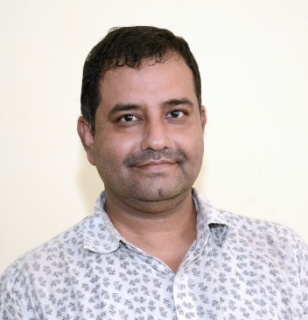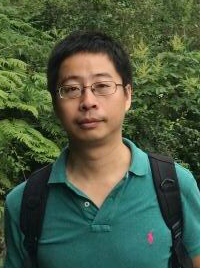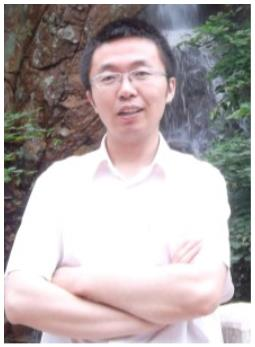
2022 3 rd International Conference on Artificial Intelligence and Healthcare(CAIH2022)
Speakers

Professor Chiranjib Chakravartty
Adamas University Kolkata, Indian
Research Experience:
Dr. Chiranjib Chakraborty is a Professor at the Department of Biotechnology at Adamas University Kolkata. He was a former Professor, Galgotias University, India, and a former Associate Professor, VIT University, Vellore, India. Dr. Chakraborty is also a visiting Professor at Institute for Skeletal Aging & Orthopedic Surgery, Hallym University, South Korea. He has 25 years of research experience, including four years of industrial R& D experience. He has 18 years of teaching experience. At the same time, he is academic editor of iScience, handling/receiving editors of infection, genetics, and evolution, associate editor of ‘Frontiers in Pharmacology’, ‘Frontiers in Bioengineering and Biotechnology,’ editor of ‘Current Microbiology’ and editorial board member of ‘Nature Scientific Reports,’ ‘Interdisciplinary Sciences: Computational Life Sciences,’ ‘BIOCELL’ etc. He has guided 3 Ph.D. students and several B.Tech., M.Tech., and M.Sc. projects. His research interest is Medical bioinformatics/immunoinformatics, noncoding RNA, COVID-19, diabetes, etc. Dr. Chakraborty received 9 awards. He has developed 12 technologies for industries. Among his 12 innovative technologies, patent application filled for seven technologies (patent applied/preparing for application). He published more than 188 SCI/SCIE and Scopus index papers, five books, and two edited books (h-index: 44; i10 index: 101; Citation: 6,047 (According to Google Scholar); Cumulative SCI/SCIE Impact Factor (IF): 805.749; Average SCI/SCIE Impact Factor: 4.30). He has been listed top 2% of Scientists in the World by Stanford University, USA/Elsevier BV in two consecutive years (2020 and 2021).
Title:
Recent Advances of Artificial Intelligence/Machine learning/Deep learning (AI/ML/DL) in drug discovery to clinical trial
Abstract:
Recently, advances of Artificial Intelligence/Machine learning/Deep learning (AI/ML/DL) using in the area of disease diagnosis, drug discovery, preclinical trial, and clinical trial to increase pharmaceutical productivity. In this talk, I will discuss how different algorithms, models, and tools of Artificial Intelligence/Machine learning/Deep learning (AI/ML/DL) are guiding the pharmaceutical industry's automation to enter a new area of automation. We also discuss the current development status and the future prospect of Artificial Intelligence/Machine learning/Deep learning (AI/ML/DL) in the area of drug discovery to clinical trial.


Prof. Qiang Chen
Nanjing University of Science and Technology, China
Research Experience:
Qiang Chen received the B.S. degree and Ph.D. degree from Nanjing University of Science and Technology, Nanjing, China, in 2002 and 2007, respectively. He held a post-doctoral position with the Stanford University from 2010 to 2011. He is currently a Professor with Nanjing University of Science and Technology, Nanjing, China. His research interests include image processing and analysis, machine learning.
Title:
AI Based Retinal Lesion Growth Prediction
Abstract:
Abstract: The automated prediction of retinal lesion growth can help ophthalmologists understand how the lesion progresses, and assess the efficiency of current treatment and the prognosis of the disease. In this presentation, we will introduce our work on geographic atrophy (GA) and choroidal neovascularization (CNV) growth prediction by using artifical intelegentence technologies. For GA prediction, a traditional machine learning method and a deep learning method were proposed. For CNV prediction, a lesion attention maps-guided network (LamNet) was proposed to predict the CNV volume. In addition, a generation-based image-to-image prediction method will also be simply introduced to predictively generate post-therapeutic images.


Associate.Prof. GuoBin Ding
Shanxi University, China
Research Experience:
Dr. Guo-Bin Ding graduated from Jilin University in 2012, currently he is an associated professor of Institute of Biotechnology of Shanxi University, and a council member of Shanxi Society of Biochemistry and Molecular Biology and Shanxi Society of Microbiology. He was a visiting scholar of the medical center of Johannes Gutenberg University (JGU) in Mainz, Germany. He is a Young talent of “three Jin talents” support program of Shanxi Province, a direction leader of the key innovation team of the “1331 project” in Shanxi Province, and the excellent master thesis supervisor of Shanxi Province. He is the principal investigator of six research grants from National Natural Science Foundation of China and Shanxi Province, three of them was completed. So far, he has published more than 30 SCI-indexed academic papers in high-impact journals such as Bioactive Materials, ACS Applied Materials & Interfaces, Materials & Design and Molecular Pharmaceutics. He holds 2 Chinese patents, and won the second prize of Jilin Provincial Natural Science Award in 2015 and 2018.
Title:
Fabrication and biological evaluation of tumor acidic microenvironment-responsive targeted macromolecular delivery system
Abstract:
Proteins and nucleic acids-based macromolecular antitumor agents possess some unique advantages as compared to small molecules, such as good biosafety, high specificity and efficacy, and have gained increasing attention in recent years. However, their biomedical application is greatly hampered by their intrinsic characteristics including hydrophilicity, large molecular size, short half-life and poor cellular internalization. Tumor acidity is an adaptive characteristic of most cancers, and could be utilized to develop nanocarriers with universal tumor targeting ability. pH low insertion peptide (pHLIP) is a short (36 amino acids), pH-responsive peptide that could insert its C-terminus across the cell membrane via forming a stable transmembrane a-helix under acidic conditions. In this speech, two pHLIP-based tumor acidity-targeted delivery systems will be introduced, they were employed for effective delivery of protein (plant toxin gelonin) and siRNA targeting pyruvate kinase M2 (PKM2), respectively.


Prof Sanjiban Sekhar Roy
Vellore Institute of Technology, Indian
Research Experience:
Dr Sanjiban Sekhar Roy is an Associate Professor in the School of Computer Science and Engineering, Vellore Institute of Technology. His research interests include deep learning and advanced machine learning. He has published(or accepted) around 60 articles in reputed international journals (with SCI impact factors), conferences and editorial board members to a handful of international journals and reviewer to many highly reputed journals. Dr. Roy has edited around 7 books with reputed international publishers. Besides, the Ministry of National Education, Romania & "Aurel Vlaicu" University, Romania has awarded Dr Roy with "Diploma of Excellence" for the scientific research activity in 2019. Dr Sanjiban was also an associate researcher in Ton Duc Thang University,Vietnam between 2019 to 2020.
Title:
Medical report generation from X-ray image using deep learning
Abstract:
Writing imaging reports is a critical task, especially in a rural area where the health care system is already poor. Moreover, depending heavily on radiologists' and pathologists' interpretations, who sometimes seem less experience, makes the medical system worse. Therefore, there is a considerable demand for this summarization of the imaging report, and we also want a quick automated report. Hence, in this talk, a discussion will be carried out on a few AI and deep learning models that can generate text files based on a given input X-Ray image. That text file can help the actual radiologist to provide a better interpretation of the disease.
